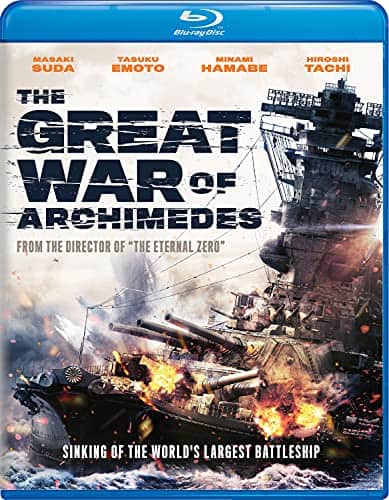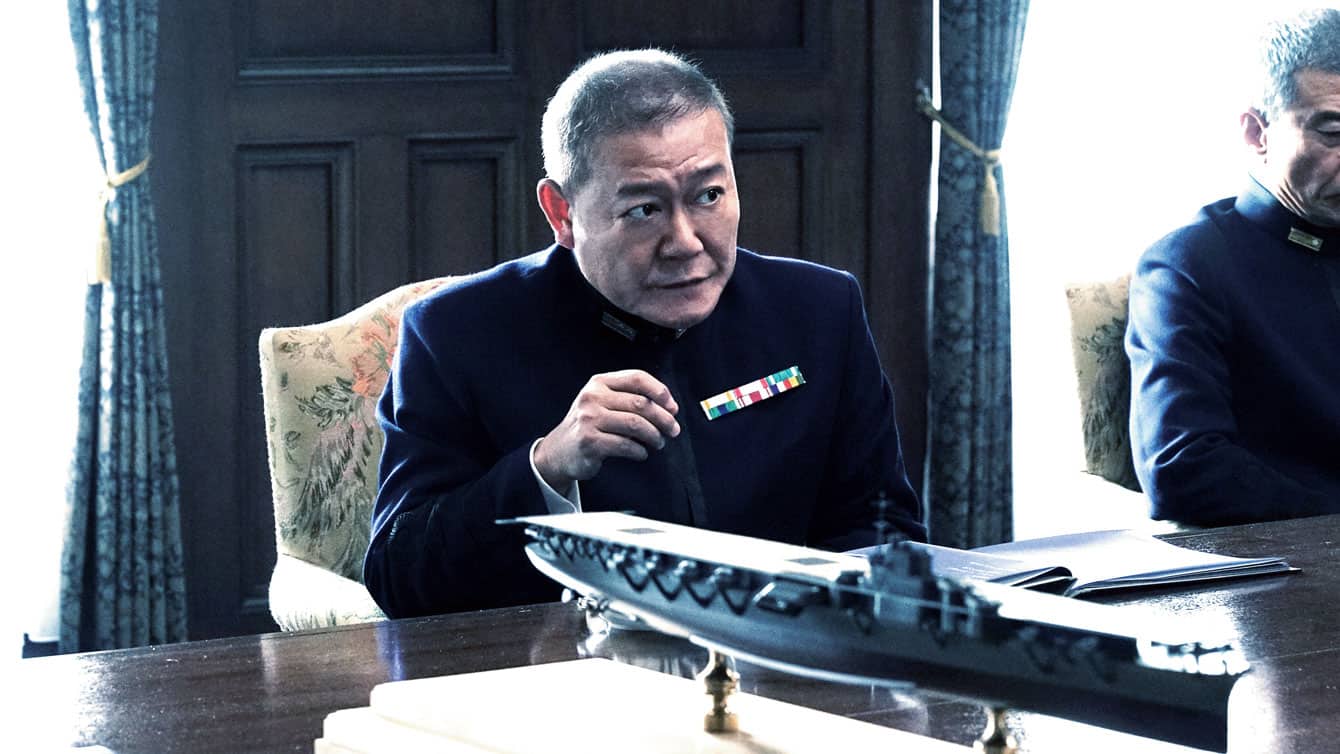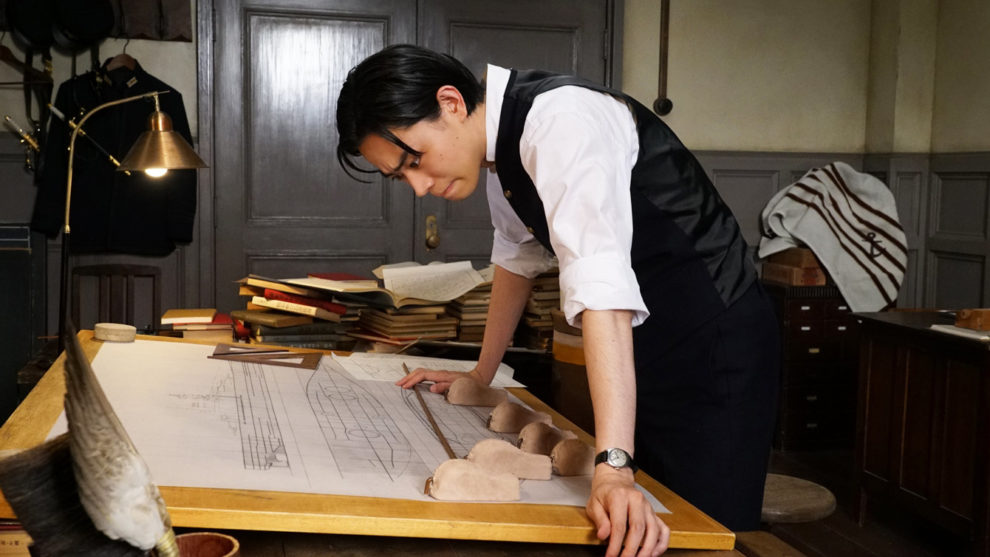As the film begins with an action scene filled with visual effects, explosions and war in all its cinematic glory, one would think that this was going to be another war drama about the loss the Japanese suffered in WWII, much like one of Takashi Yamazaki's previous works, the multi-awarded “The Fighter Pilot”. However, as soon as the second scene depicts a heated argument among the people in charge of the Japanese navy in 1933, regarding the type of the vessel they should build, it becomes evident that the based on Norifusa Mita's manga film is a whole different kind of movie.

On the one hand, Shigetaro Shizuma and mechanic Tadamichi Hirayama insist on building a huge battleship that will boast the glory of Nippon and elevate morale among the troops and the population. On the other, Isoroku Yamamoto and Osami Nagano insist that a fighter jet carrier is the way to go, since the battle of the skies is the one that will win the war. The former group manages to win, particularly because they present a rather viable budget.
Yamamoto and Nagano have their doubts however, and a fateful meeting with Tadashi Kai, a young man who hates the army and at the same time, is a mathematic genius, ends up with them enlisting him to prove that the budget the other group mentioned is not realistic. A reluctant Tadashi Kai eventually agrees to help and is even named Major, while Second Lt Shojiro Tanaka is ordered to be his “assistant”. The two of them have to prove that the aforementioned budget is wrong until the next meeting of the war council, a timeline though, that is considered almost impossible for two people to come up with a full analysis. Furthermore, the other group is not particularly eager to let them do as they wish. Kiyoshi Osato, a former contractor for the army and Minami Hamabe, Tadashi's friend help them, but as time passes, their goal becomes more and more difficult.

The jingoistic aspects of the story are evident almost from the beginning, something that was expected, since battleship Yamato has always been a symbol for the Japanese army, with its tragic fate actually intensifying this sentiment. The way Tadashi is convinced to become a member of the army despite his initial protests, the pride that many of the protagonists exhibit for being in the Navy and, most of all, the finale with the reasoning regarding the manufacturing of Yamato definite fall under this aspect.
However, Takashi Yamazaki also includes a rather critical approach towards the Japanese army of the time and the practices of the higher ups, with the story also dealing with bribes, agreements under the table, corruption, and in general a part of the e military machine that is anything but honorable. The same applies to the way Yamamoto and Nagano are treated, with their progressive ways essentially being mocked, as Shizuma's reasoning could be synopsized by a phrase he utters during the initial meeting, “Only cowards fight by air”. Furthermore, the tricks his side implements to prevent Tadashi and Kiyoshi from finding the truth are truly despicable, with the machinations being of the lowest level.
This last aspect is the one that brings us to the entertainment aspect of the movie, with the efforts of the two protagonists against time, and essentially all odds, intensifying the agony about the outcome, even if what happened in the end is already known. To dull this aspect, of the viewers essentially knowing the end, Yamazaki has included a number of twists, which finds their apogee in the final meeting, where the upper hand changes a number of times.
The second rather entertaining aspect is the antithesis of Tadashi and Kiyoshi, with the first one appearing aloof, dismissive of the army ways, and in general totally opposite with what military discipline dictates, and the second embodying both spirit and rules to the dot. This antithesis is rather amusing to witness, with Yamazaki presenting it in humorous ways for the most part, with the fact that the former is actually the higher up in the duo becoming the source of a number of jokes. Lastly, this part benefits the most by the acting of Masaki Suda and Tasuku Emoto, respectively, who make the most of their difference, even if the former's acting occasionally loses its sense of measure.

Talking about acting, the veterans in the movie are also great in their own differences, with Hiroshi Tachi as Yamamoto and Jun Kunimura as Nagano appearing calm and respectful, and Isao Hashizume as Shizuma always blowing a short fuse, being eager to offend in a loud voice, in a role he has perfected through the years. Tsurube Shofukutei also gives a memorable performance as Osato, a kind of a mentor who is also disillusioned and regretful.
The newsreel approach (as in “Yakuza Papers” and “Godzilla: Resurgence”) that is particularly dominant in the beginning is rather well implemented, highlighting Ryuji Miyajima's editing and presenting the case quite clearly, with the details about the logistics of building war ships being revealing, in an aspect very rarely depicted on screen. In generally, the editing emerges as one of the best aspects of the movie, with the pace being quite fitting throughout the different style of sequences that comprise the narrative. Kozo Shibasaki's cinematography is somewhat polished, but captures the atmosphere of the era and the aesthetics of the story rather nicely, with the framing particularly in the war councils being impressive.
The manga-esque hyperbole and some jingoistic elements may deter the overall quality of “The Great War of Archimedes” but the story is rather intriguing, and the way Yamazaki implements it quite entertaining, resulting in a movie that is quite pleasant to watch.















